What would Rocky have been without his ability to take a punch? Probably on the mat – with Mr. T doing a victory dance around the ring.
Volkswagen’s in a similar spot – having lost the turbo-diesel punch (and near-hybrid mileage) that gave cars like the Jetta sedan something other cars in its class couldn’t match.
Over the years, I’ve had the chance to test drive several TDI Jettas – before Uncle put them on the mat – and always got better-than-advertised mileage; 50-plus on the highway. Right there with a hybrid Prius. But the Jetta did it without being a hybrid Prius – and without costing as much as a Prius.
Then came the “cheating” debacle, which among other things has eliminated the brilliant TDI engine from VW’s North American model lineup – at least for now. Which eliminates the advantage the Jetta used to have over other cars in its class.
Lux it up.
The just-redesigned Jetta lures with looks – and amenities. It is closer than ever to being an Audi in all but name – and price – and that’s something its rivals will never be, Uncle’s help notwithstanding.
But it’s a damned shame about the diesel – which was beautiful in a way that sexy lines never will be, either.
It’s also a shame about the 1.8 and 2.0 liter gas engines – which have been dropped from the roster as well. The 2.0 engine in last year’s Jetta GLI was the same basic engine used in the Golf GTI hatchback and made the Jetta so equipped a stealth GTI for the family guy.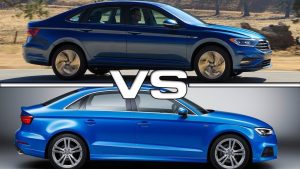
But VW is under more than the usual duress.
The emissions “cheating” thing has put the company in the crosshairs and probably for this reason, VW is going the extra mile to appear . . . cooperative.
Especially now that Uncle has – in his usual underhanded way – conflated emissions with fuel economy. You may have noticed. In addition to the usual city/highway MPG numbers posted on the new car window sticker, there is now a “greenhouse gas” number, right beside them.
The larger the engine, the more “greenhouse gas” (C02) it “emits.”
Oy vey.
VW doesn’t want to be seen as an “emitter” – even though the “emissions” at issue are a phantom menace. Plus, the fuel economy part is very real. The previously available 2.0 engine used significantly more gas than the newly standard 1.4 liter engine – which makes sense, given it’s about 30 percent smaller (and a lot less powerful).
Thus, it ran afoul of the fuel economy fatwas – Uncle’s demands that every new car average “x” MPG or else its manufacturer gets socked with fines intended to make the non-compliant car more expensive, as a negative incentive – to “encourage” people not to buy it.
That’s why both the 2.0 liter and the 1.8 liter engines are off the table.
Remember what the old Indian told the Outlaw Josey Wales? Endeavor to persevere.
Sigh.
The Jetta is technically in the entry-level compact sedan class, but at 185.1 inches long overall (almost two inches longer for the new model year) it is only slightly smaller on the outside than a mid-sized standard-bearer like the Toyota Camry (192.7 inches long overall).
It’s also bigger, more impressive-looking car than entry level compact-sized rivals like the Chevy Cruze (183.7 inches) as well as roomier in the back seat.
Plus it can be ordered with Audi-level amenities, including a 10.2 inch configurable flat screen main gauge cluster complemented by a glass-covered 8 inch pinch/zoom secondary touchscreen. It’s very similar to what you’d find in a $50,000 Audi A6 or $100,000 A8 – and which you won’t find in a $25k Cruze or other Jetta rivals like the Mazda3 and Toyota Corolla.
Base price for the S trim with six-speed manual transmission is $18,645 – which is actually a price cut for the new model year and not just in terms of money. Last year’s Jetta (technically still this year’s Jetta, since it’s still 2018) started at $18,645 – with a five-speed manual transmission. 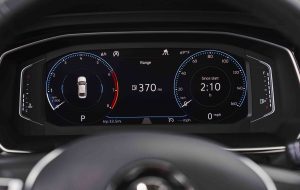
So you get $100 discount right off the bat on the new (2019) car – plus the new transmission.
Plus the whole new car.
A top-of-the-line SEL Premium with an eight-speed automatic stickers for $26,945.
Just for reference, the Audi A3 – which is Audi’s smallest sedan and which is kin to the Jetta – is a smaller car than the Jetta with a much less roomy back seat and a much smaller trunk (12.3 cubic feet vs. 14.1 cubic feet) but a much higher price tag – $31,950 to start – because it’s an Audi.
Well, it does still have have the 2.0 liter turbo engine the Jetta’s been shorn of – so you do get something for your money besides the four circled badge on the horn button.
WHAT’S NEW
In addition to being a new calendar year Jetta, the Jetta is also new. It is the first new VW to be built on VW’s . . . . new “MQB” modular chassis, which will be the basis for a number of new VW models going forward.
This is a hearkening back to the old VW idea of economizing by keeping things simple. You may remember. VW started with the Beetle – the old Beetle – and used the Beetle’s chassis as the basis for Karman Ghia coupes, Campwagen buses and Things. The shared parts kept down the manufacturing costs, which meant the cars could be made – and sold – for less. It also meant that lots of parts interchanged.
Which helped owners save money on repairs.
So, that’s the idea – recycled – here.
In addition to the new underthings – and styling – the new Jetta is also longer, wider and lighter than the outgoing model.
But – damn – it’s a shame about that diesel.
Own an Audi – almost – without paying for one.
40 MPG on the highway.
New six-year/72,000 mile full-car warranty coverage.
WHAT’S NOT SO GOOD
No more 2.0 engine (or even 1.8 engine).
No more 50 MPG diesel engine.
Smaller trunk than before.
VW has also simplified the Jetta’s underhood options. There aren’t any. All trims come standard with the 1.4 liter turbocharged four that was available last year, but which could be subbed out – if you wanted something stronger – with either of two optionally available engines: These were the previously mentioned 1.8 liter and 2.0 liter turbo fours, the latter one making 210 hp, nearly as much as the 2.0 liter engine (the same basic engine) used in the Audi A3 and A4.
For 2019, it’s 147 hp.
Period.
But, you can get it with a new six-speed manual transmission and fuel efficiency goes up to 30 city, 40 highway vs. 28 city, 38 highway previously.
This is about as good as it gets without going with a hybrid.
Or a diesel.
Which the Jetta’s Chevrolet rival, the Cruze is available with. That one achieves a class best 48 MPG – nearly as good as the Uncle-throttled TDI Jetta was capable of. But, Chevy does what VW didn’t do – and which negates the economy advantage of the diesel: They only offer the diesel engine in the higher trimmed versions of the Cruze, with the last expensive version listing for $23,795 (vs. $16,975 for the base Cruze with the 1.4 liter turbocharged gas engine and six-speed manual transmission).
Before Uncle, VW used to sell the TDI Jetta for about $22k – which made it the most economical car in its class. More economical than the Prius hybrid – which costs several thousand dollars more to buy and wasn’t significantly more economical to drive.
The current Prius takes about 10.3 seconds to haul itself to 60 – a slow time for a modern car.
The TDI-powered Jetta – last available in 2016, pre-scandal – got to 60 in about 8 seconds – and its tremendous low-end torque (236 ft.-lbs. at just 1,750 RPM) gave it the gumption to leap forward like a startled bullfrog when called upon.
The new Jetta with the 1.4 liter turbo gas engine isn’t as slow as the Prius – but it’s not as quick as the old TDI, either.
Zero to 60 in just over 9 is as good as it gets. And forget 50-plus MPG.
Send thanks to Uncle.
The Jetta drives a lot like an Audi A3 – just without the surplus power.
The 1.4 engine tries. It feels peppy initially – and the part-throttle response is promising. But when you push the pedal all the way down, you quickly discover there’s not much left down there.
VW – like everyone else trying to maintain power with ever-smaller engines in order to keep the government’s regulatory ayatollahs off their backs – relies on turbocharging these micro engines to make up for the smallness. And they’ve snugged the turbo right up against the exhaust ports, so as to generate boost pressure almost immediately.
In order to mask that this engine is a small engine.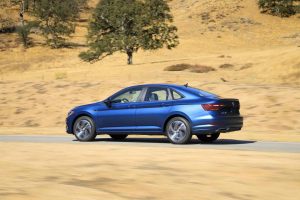
The surge of right-now boost enables the engine to generate its peak torque (184 ft.-lbs.) at just 1,400 RPM – so no waiting until the engine is spinning for things to get going.
This helps.
But this is still a fairly big car – almost mid-sized – and even though VW has managed to reduce the curb weight vs. last year’s Jetta, the 1.4 engine is on the borderline of being under-engined for this car.
Which is otherwise a near-Audi. In looks, and feel – and without doubt, amenities.
Hence the disappointment when you push the pedal home and not much happens.
Nothing bad happens. The Jetta isn’t gimpy. But it should be more than just adequate. Because the Jetta – itself – is. The Audi bloodlines and the luxury implications lead to expectations of something more than adequate.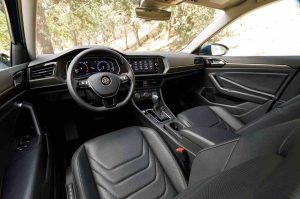
VW hopefully has something on deck that will do justice to this car.
In the meanwhile, know that you can make the most of what’s available at the moment by going with the six-speed manual transmission over the eight-speed automatic. Not because the manual is quicker-shifting or because the automatic isn’t.
Because you’ll get a significantly lighter car.
The manual Jetta weighs 2,888 lbs.vs. 2,959 lbs. for the automatic-equipped version. It doesn’t sound like much. But when you’ve only got 147 hp to work with, having 71 lbs. less for the 147 hp to have to work with . . . helps.
Still, it’s tragic – that’s the right word – about the forced retirement of the TDI diesel. Which would have more than helped. In this lighter – and larger – Jetta, its 236 ft.-lbs. would have translated into even quicker acceleration and higher fuel economy. Probably 55 on the highway, if you drove it right.
People ought to be angry. Not at VW for “cheating.” At the government, for persecuting the company over what amounted to using a radar detector to avoid a speed trap.
It makes my teeth ache.
Sedans have been losing ground to crossovers (and hatchbacks) because they aren’t as practical. Which explains why the latest crop of sedans – including the new Jetta – emphasize styling.
VW pressed the Jetta’s suit. Several times. It has crisp horizontal pleats along the side and hood and is longer wider – and lower – than the old Jetta. LED headlights and trapezoidal exhaust cutouts blended into the lower rear bumper suggest Audi-ness.
Even more so inside.
The Jetta – which is still at least nominally a VW – can be ordered with a 10.2 inch LCD main gauge cluster, configurable to suit. You can set it up to view the GPS map directly in your line of sight – or any of several other functions. This is high-end stuff that’s unusual stuff to find in a car in the Jetta’s price range.
The Digital Cockpit is recessed in a slick-looking trapezoidal housing, to the right of which is the secondary LCD touchscreen display for the audio system (a 12-channel/400 watt Beats system is available) and various apps, including the configurable Driving Mode options, which let you individually tailor steering feel, shift quickness and throttle response. Depending on which mode you select, the color of the ambient interior mood lighting changes accordingly. Or you can manually select from the 10 available background hues.
At night, bathed in the warm glow of the Digital Cockpit/LED mood lighting, the ambiance is so convincingly Audi you’ll possibly hallucinate the quadruple ringed badge on the steering wheel’s horn button.
The 2019 Jetta’s trunk shrinks to 14.1 cubic feet – down from last year’s more conventionally shaped Jetta, which had an almost 16 cubic foot trunk. There is also a bit less backseat legroom than before: 37.4 inches vs. 38.1 previously.
There is a bit more head and shoulder room in both rows, though.
It’s also a larger, more impressive-looking car than others in this class – about two inches longer overall than the Chevy Cruze, for instance.
Again, style vs. other things.
THE REST
One area of non-Audiness is the Jetta’s fuel requirements. The 1.4 liter engine is a regular fuel engine. This s no small thing given the (roughly) 40 cents per gallon difference between regular unleaded and premium.
It’s some compensation for the absence of the diesel.
Note also that the EPA’s mileage estimates (30 city, 40 highway) are the same whether you go with the manual or the optional automatic. Be hipped, though, that the more fun-to-drive manual is only available with the base S trim; the higher trims (SE, R-Line and SEL) are all automatic only.
THE BOTTOM LINE
The old Jetta was beautiful in ways the new one isn’t – and the reverse. It will be interesting to see which form of beauty appeals more to buyers.
. . .
Got a question about cars – or anything else? Click on the “ask Eric” link and send ’em in!
If you like what you’ve found here, please consider supporting EPautos.
We depend on you to keep the wheels turning!
Our donate button is here.
If you prefer not to use PayPal, our mailing address is:
EPautos
721 Hummingbird Lane SE
Copper Hill, VA 24079
PS: EPautos magnets are free to those who send in $20 or more. My latest eBook is also available for your favorite price – free! Click here. If you find it useful, consider contributing a couple of bucks! 


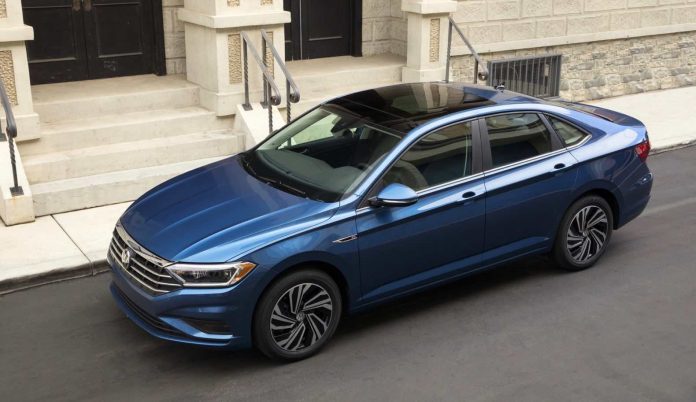



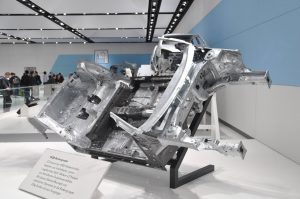

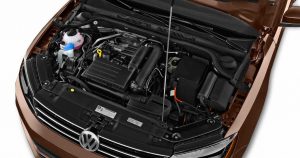
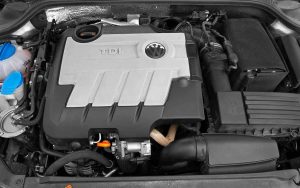

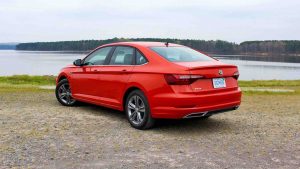

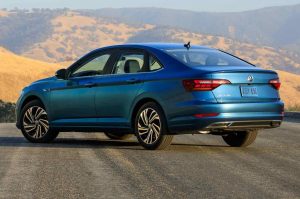



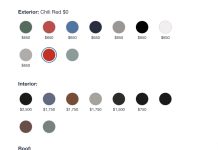




http://www.columbia.edu/~vjd1/carbon.htm
Read this carefully. The planet has several feedback mechanisms to balance out CO2. It will never go to 1000ppm. The “models” are all BS, they do not account for these mechanisms.
I drove one today. It is wonderful actually but not quite as fun as a Golf or the old Jetta, but the amenities are superior. If I wasn’t so hot for the Arteon I might have bought it for my wife
Hi Alex,
It’s a very nice car – and would be even nicer with a 50 MPG (and 236 ft.-lbs. of torque) TDI!
You can now buy repaired used VW diesels:
http://markets.businessinsider.com/news/stocks/volkswagen-tdi-models-available-with-deep-discounts-at-apex-motorworks-1027365907
https://www.apexdrive.com/clp-used-volkswagen-tdi-burr-ridge-il?utm_source=prnewswire&utm_medium=press_release&utm_campaign=12jul2018
Nice review, Eric. I just turned in my 2015 VW Passat TDI for the buyback cash – too good a deal to pass up in my circumstances. I bought it new almost exactly three years ago – it was a great vehicle. I would have considered replacing it with a Tiguan but VW has lost me as a customer.
To turn in the Passat, I had to take off at 1:00 on a Wednesday to drive an hour to the only dealer in Northern Virginia that was accepting cars. There were no evening or weekend turn-in appointments. The nearest dealer, 15 minutes away from me, as well as two dealers more local, were “no longer participating” in the buyback program. At the dealer, the process was quick and efficient but no one bothered to offer to show me new models. I’ve not received any special offers, or even a simple request to visit a showroom from VW.
I really like VW design and engineering but they’re not distinctive without the TDI. The longer warranty is good but long overdue. If VW made a manual transmission available in the Tiguan or on the higher trims of the Passat (especially with the V6 engine), I might consider buying one.
I really miss my Passat. The best example of the range it had was on a 990 mile round trip from Northern Virginia to Toronto, Canada. Starting with a full tank, with one passenger, we made only one fuel stop for the whole trip, for 7.5 gallons, and arrived home with nearly a quarter tank left. That’s the kind of efficiency the federal government doesn’t want us to have.
Thanks for the kind words, David! And very sorry to hear about your Passat. And of course, about VW generally. It is depressing as what’s happening to America to see what’s happening to VW… the two things being related, of course,
Very well written sir, and spot-on accurate with the efficiency of the TDI motors! I’ve been arguing w friends your home-run point that VW didn’t do anything to screw customers, but simply bypassed some lackluster arbitrary government numbers. As you implied, customers got a hell of a great deal that was win-win for everybody (except the bureaucrats).
Sad about the 1.4T… But there are reputable companies out there that do software flashes that will boost the numbers up simply by plugging into a computer once. Companies like APR or UNITRONIC have been doing it years and years. A stage 1 flash will bump up the 1.4T from 148 TQ to 203 TQ, giving it a significant boost. Those willing to void the warranty will have something more enjoyable if performance is a must-have.
Thanks, VW!
What’s being done to VW (and Audi) makes me ill; see the latest article, just posted…
Eric, Gotta be hard to try to put a positive spin on most of these new car reviews. Not to single out this poor Jetta. But it is a perfect example of why more and more people would rather buy used than new.
Of course, every VW review for you turns into a diatribe against the demise of the TDI.
I’d encourage you to “get over it,” but that would be about as useful as telling a hillary fanatic to “get over” Trump. 😉
> For 2019, it’s 147 hp.
That’s the same horsepower as I got in the 2.8 liter VR6 that was in my 1995 GLX. Of course, this is a much heavier (and safer) car, so what used to be sporty is now .. not sporty.
As good looking as it is, I still won’t buy one because I have yet to visit a VW dealership and have a good experience. They aren’t *quite* wearing loud plaid polyester sportcoats, but their sales people act as if they were.
Hi Chip,
In historic/general terms, it’s not slow. But it’s slower than it used to be. And there’s no longer an upgrade, which sucks. Note the trend: Heavier/bigger cars… smaller/weaker engines…
It’s the 70s and early 80s all over again. I hate todays cars almost as much as then.
Hi Swamp,
It’s worse… in the ’70s, you could un-fuck the cars. Today’s cars are fucked permanently.
It is. You could un fuck them. VW really screwed the customer up by doing this. I’m sick of these chicken shit car manufacturers supplicating themselves to the big brother. Makes me sick. If I didn’t need a car, I would likely not even have one. Not because I hate cars, but because I’m tired of supporting companies that don’t give a shit about their customers. I don’t even want to buy an oil filter these days.
Agree, Swamp… and I think I know why. Why they truckle and play ball. It is because of short-term/quarterly thinking by the CEOs. They don’t care about the future. They care about milking the teat for as much as possible in the shortest possible time.
Hi Eric.
Those “repaired” (meaning M.P.G. drastically reduced) TDI cars that were bought back by VW seem to be hitting the used market now; I am seeing them all over the place at used car dealerships. And the nice thing is: just like the guy at the swap meet who can unlock your iPhone, there’s also a guy who can “unlock” your TDI…but shh, don’t tell anyone.
Hi Fack,
Excellent (cue Mr. Burns voice)… I wish, wish, wish I had the means to get one for testing purposes. In addition to the reboot, I would lighten the thing up by removing certain not necessary things (you can guess) and maybe swap on a set of skinny 15×7 wheels… would bet you a can of R12 I could get 60 MPG out of one.
I hear you. Heck, we could all probably squeeze out 60 MPG with the right conditions…if Uncle Scam granted us the freedumb to do that. And you be careful with that R-12, that stuff is potent. 😉
I had to get the “fix” on my Cayenne Diesel, it seems as powerful, no real torque decrease that I can see (and I’d notice trust me) MPG is down by 1 mpg overall, it is a little louder, uses more horse urine and I notice when cold it changes the shift points to help the warmup – basically it stays in Sport Mode until warm.
I didn’t want to do it but they warned me that if it ever needed work the older parts would not be available and they’d have to apply the “fix” anyway.
The unexpected this was when I put the chip back in it got even quicker, knocked 1/2 sec off the 0-60 time according to the built-in stop watch.
Eric, if you ever want to test it, I am up your way from time to time I can get you a half day with it sometimes.
Thanks, Alex!
Open invitation to you and others out there; the Fuhrerbunker welcomes visits; just announce yourself prior, so I don’t release the hounds!
How does the 2019 Jetta compare to the Golf sportwagen? I’ve always found the previous Jetta sportwagen to be at least as roomy inside as the Tiguan, but with better economy and driving dynamics.
Hi Dood,
This is subjective, just my personal opinion…I am partial to the Sportwagen vs. the new Jetta. Mainly because I love wagons. Especially VW wagons. But I also really liked the old Jetta. Not as sexy/luxury as the new one, certainly. But beautiful to me – because of its TDI engine and its 2.0 engine, both sorely missed. Also, the bigger trunk.
The old Jetta was plain, but that took nothing away from what made it appealing… to me.
I almost bought a leftover 2013 Jetta GLI to replace my Subaru. I’m glad I did’t because I’d probably still be paying for it, but I must say, 2013-16 were the sweet spot years for these cars. They didn’t come standard with that On=Star based rat box and the cars still had a key. The 1.8L turbo had plenty of power and the GLI could rip through the corners pretty well. It also had ample acceleration and top end power to work very well. The idea of going to a 1.4L is a travesty. No one could never convince me to buy one of these. This so-called luxury car looks like a Ford Appliance.
I remember when the previous generation Jetta first came out all the comments on autoblog criticized it for having the 2.5L 5 cylinder. Certainly doesn’t seem so bad now.
Hi Brandon,
The five cylinder was a solid, relatively simple engine. Not glamorous, but suited to the car. The TDI was, of course, brilliant. And you could also opt for the 2.0 in the GLI.
Sad to see all these great engines disappearing – not because of buyer preferences but because of government bayonets.
I like the 2.5L engine. It is reliable and it isn’t slow. I think it would be fine with a 6 speed transmission. or a 5.
Hi Anonymous,
Me too. A good, solid engine without unnecessary add-ons. Which of course is why it had to be replaced.